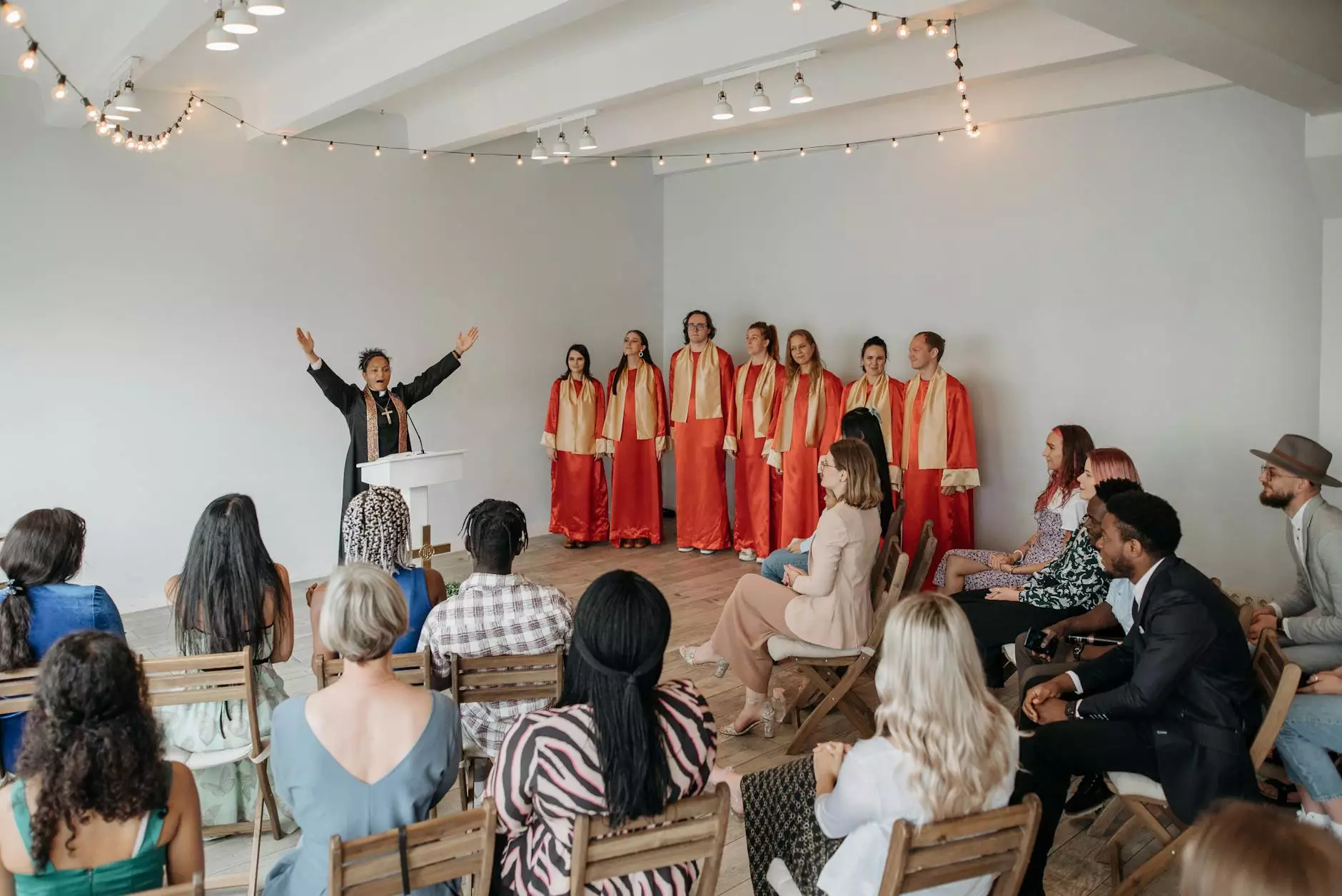Discover the Church of the Millennials: A New Era of Faith and Community

The landscape of religion is undergoing a seismic shift, driven largely by the values and preferences of a generation eager for authenticity and engagement. The Church of the Millennials represents a dynamic movement that is not just redefining what it means to be part of a congregation, but also reshaping the very core of spiritual life today.
Understanding the Rise of the Millennial Church
As we delve into the concept of the Church of the Millennials, it's crucial to understand the socio-cultural context that has given rise to this phenomenon. Millennials, those born between 1981 and 1996, have grown up in a rapidly changing world characterized by technological innovation, shifting societal norms, and increased global connectivity.
Key Characteristics of the Millennial Generation
- Digital Natives: With the internet and smartphones becoming integral parts of their lives, millennials are accustomed to accessing information instantly.
- Value Authenticity: This generation seeks genuine connections and experiences, favoring transparency over traditional authority.
- Socially Conscious: Millennials are deeply concerned about social justice, equality, and environmental issues, and they often align their values with their faith.
- Desire for Community: Rather than traditional church attendance, millennials prefer engaging in community-oriented activities that promote inclusivity and fellowship.
Redefining Spiritual Practices
The Church of the Millennials adopts a fresh approach to worship and religious engagement, moving away from rigid structures and embracing more fluid practices that resonate with contemporary life.
Creative Worship Experiences
Millennial-focused churches often curate worship experiences that incorporate music, art, and multimedia to foster a deeper emotional connection. This creative approach not only enhances engagement, but also makes spiritual practices more relatable to everyday life. For instance, performances by local musicians, interactive sermons, and community art projects can dramatically transform the way faith is expressed and experienced.
Utilizing Technology
Technology plays a pivotal role in the Church of the Millennials. Many congregations actively use social media and live streaming services to reach worshippers where they are. This digital outreach allows for:
- Broader Access: People who are unable to attend in person can still participate in services and community events.
- Interactive Engagement: Online platforms enable congregants to engage in discussions and share their thoughts in real-time.
Building Community Through Service
The Church of the Millennials emphasizes the importance of community involvement and social justice as core components of faith. Many millennials expect their religious organizations to be active participants in addressing societal issues.
Volunteerism and Outreach Programs
Organizations like Bridge Church NYC have made strides in creating programs that allow members to engage directly with their communities. Whether it's through food drives, homelessness outreach, or environmental cleanup initiatives, millennials are motivated by the opportunity to make a tangible impact. This integration of faith and action cultivates a sense of purpose and belonging.
Creating Flexible Spaces for Gathering
Millennials often favor unconventional settings for spiritual gatherings. Coffee shops, parks, and community centers can serve as vibrant venues for worship. These informal environments encourage open dialogue and foster relationships, making them ideal for sharing faith in ways that feel integrated into daily life.
Inclusivity and Acceptance in the Millennial Church
Inclusivity is at the heart of the Church of the Millennials. Today's younger generations are more diverse than ever before, and they expect their spiritual homes to reflect this diversity.
Affirmation of LGBTQ+ Communities
Many millennial churches actively promote acceptance and inclusion for LGBTQ+ individuals, presenting a stark contrast to more traditional religious practices. By fostering a welcoming environment, these churches encourage all individuals to explore their spirituality free from judgment.
Addressing Social Issues
Millennials seek to engage with pressing social issues, including racial inequality, climate change, and economic disparity. The Church of the Millennials responds by addressing these topics from the pulpit and facilitating discussion groups that allow congregants to explore their faith in the context of social responsibility.
The Importance of Personal Connection
As personal connections become more crucial in the spiritual journey of millennials, building community is essential for churches looking to connect with this demographic.
Small Groups and Discipleship
Smaller gatherings facilitate deeper conversations and foster relationships that might not emerge in larger congregational settings. Many churches, including Bridge Church NYC, implement small group programs where congregants can study faith, share experiences, and support one another.
Mentorship and Leadership Opportunities
Millennials are not just consumers of faith; they want to take on active roles within their religious communities. By offering mentorship and leadership opportunities, churches empower younger generations to step up and contribute their unique perspectives and skills.
Sustaining Growth in the Millennial Church
For the Church of the Millennials to thrive, it must continue evolving and adapting to the world around it. This requires ongoing commitment and innovative thinking from church leaders and congregants alike.
Feedback Mechanisms
A culture of feedback can drive positive change. Engaging congregants in regular discussions about their needs and preferences ensures that the church remains relevant and responsive. Surveys, town hall meetings, and informal discussions can all provide valuable insights into how to better serve the community.
Focus on Holistic Wellbeing
Today's church must consider the overall wellbeing of its members, addressing not only spiritual needs but also emotional, mental, and physical health. By creating programs centered around wellness, churches can offer holistic care that meets congregants where they are.
Conclusion: Embracing the Future of Faith with the Church of the Millennials
The Church of the Millennials is not just a trend; it is a fundamental shift in how faith is practiced, shared, and experienced. As millennials continue to influence religious landscapes, their emphasis on authenticity, community, and social justice will shape the future of church engagement.
For organizations like Bridge Church NYC, embracing this movement means adapting to the needs of their congregation while upholding timeless principles of faith. Together, we can create vibrant communities that inspire a new generation to explore and engage with their spirituality.
For more information about how the Church of the Millennials is making an impact in the community, visit Bridge Church NYC.









